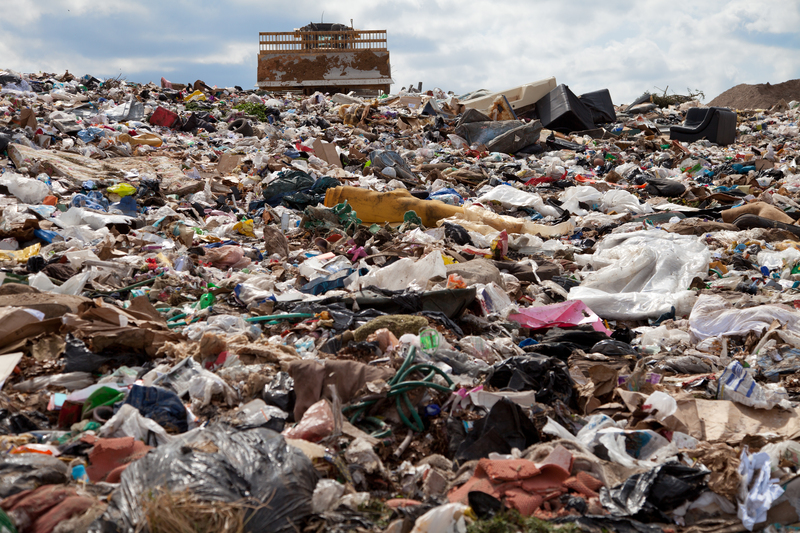Eco-Friendly and Budget-Smart Approaches to Bulky Waste Items
Bulky waste items--from broken furniture and worn-out appliances to oversized mattresses and old carpets--pose a unique challenge for households and businesses alike. Disposing of these large, awkwardly shaped items can often come with hefty expenses and a significant environmental impact. However, with some planning and creativity, there are several eco-friendly and cost-effective approaches to managing bulky waste items in a way that benefits both your wallet and the planet.
What are Bulky Waste Items?
Bulky waste, also known as large or heavy waste, typically refers to household or commercial items that are too big to be collected through regular garbage or recycling collection services. Common examples include:
- Furniture: Sofas, beds, tables, chairs, etc.
- Home appliances: Refrigerators, washing machines, dryers, stoves
- Mattresses and box springs
- Carpets and rugs
- Excess building or renovation materials
Improper disposal of bulky items can strain municipal waste systems and contribute to landfill overuse, pollution, and resource waste. Choosing sustainable and low-cost methods for bulky item waste disposal is crucial for modern households and businesses intent on reducing their environmental footprint.

Why Eco-Friendly Bulky Waste Solutions Matter
Unmanaged bulky waste can do far more harm than simply taking up space in landfills. Most large items, notably furniture and appliances, are made from materials that take years or even centuries to decompose. Some may leach pollutants into soil and water, or contribute to greenhouse gas emissions. Additionally, manufacturing new products to replace discarded ones consumes resources and energy.
Eco-friendly bulky waste disposal helps keep valuable resources in circulation, reduces landfill burden, and can often save you money in the process. To make a real impact, consider the following approaches.
1. Reuse and Repurpose: Give Bulky Waste Items a Second Life
Donation: Help Others and the Planet
If your bulky items are still in good condition, consider donating them. Many charitable organizations, thrift stores, or local community groups will gladly accept gently used furniture, appliances, and similar large items. Donation not only keeps items out of landfills, but also helps those in need and can net you a tax deduction.
- Furniture banks and shelters regularly need beds, tables, and chairs.
- Non-profits like Habitat for Humanity ReStores widely accept appliances and building materials.
- Online community groups such as Freecycle or Facebook Marketplace make rehoming items easy and free.
Upcycle or Repurpose Bulky Waste
Many large items that are too worn for reuse can still be repurposed with a little imagination. For example:
- A wooden pallet can become a rustic coffee table or garden planter.
- Old doors can be transformed into headboards or benches.
- Couch cushions may find new life as pet beds or padding for playrooms.
Upcycling keeps materials out of landfills, inspires creativity, and often saves you money on home decor or functional items.
2. Sell or Swap: Turn Bulky Waste Items Into Extra Cash
When facing the cost of removal, remember that your bulky item may still have value. Online marketplaces and local classifieds let you sell furniture, appliances, and more to someone who wants to give your unwanted items a new home--sometimes even hauling it away for you.
- Craigslist, OfferUp, Facebook Marketplace, and Nextdoor are all excellent for local sales and swaps.
- Community garage sales or swap events provide in-person opportunities to exchange large items.
Selling is not only a budget-smart bulky waste solution--it extends the usable life of the item and connects you with neighbors seeking low-cost items.
3. Responsible Recycling for Large Waste Items
For items too damaged or outdated to sell or donate, recycling is the next best alternative. Many household goods--especially appliances, electronics, and certain types of furniture--contain valuable metals, plastics, or wood that can be recovered and reused.
| Item | Best Recycling Options |
|---|---|
| Appliances (white goods) | Municipal pick-up, scrap metal yards, retailer take-back programs |
| Mattresses | Certified mattress recyclers, some waste authorities |
| Electronics | Electronic waste collection days, specialist e-waste recyclers |
| Carpets & Rugs | Carpet recycling facilities, donation if in good shape |
| Wood Furniture | Wood recycling centers, donation, or upcycling |
Recycling reduces the demand for virgin materials, conserves energy, and supports a circular economy--a key principle of sustainable living.
4. Bulk Waste Collection Services: Save Time and Money
Most municipalities offer special bulky waste collection services, either quarterly, monthly, or by appointment. Participating in these programs ensures proper disposal or recycling at lower cost compared to private haulers.
- Check your city or county website for scheduled pick-up dates and acceptable materials.
- Follow the guidelines--some services only collect certain items or require advance booking.
- If your item is recyclable, ask if it's diverted from landfill.
Some areas even provide curbside pick-up or discounted rates for seniors and low-income residents, making this a genuinely budget-friendly bulky waste solution.
Private Removal Companies: When to Consider Them
If municipal services are unavailable, private junk removal or recycling companies can haul away virtually any large item. Compare prices and ask about recycling policies to ensure your items are handled sustainably.
- Choose companies that guarantee recycling or donation of collected items.
- Price shop for group pick-ups with neighbors to reduce individual costs.
5. Avoiding Bulky Waste Altogether: Smarter Buying and Maintenance
Perhaps the most sustainable approach is to reduce the purchase of items likely to become bulky waste. Here are simple strategies:
- Invest in quality items built to last, rather than disposable furniture or cheap appliances.
- Choose products with easily replaceable or repairable parts.
- Regularly maintain and repair what you own to extend its life.
- Favor modular or multi-purpose items that adapt to changing needs.
By minimizing the generation of bulky waste through smarter purchasing, you save both money and resources while reducing future disposal headaches.
The Hidden Savings of Eco-Friendly Bulky Waste Solutions
Choosing environmentally responsible, low-cost bulky waste disposal options often produces hidden savings:
- Donation receipts for tax deductions offset future expenses.
- Repairing or repurposing saves money over buying new items.
- Community programs and freecycle groups eliminate disposal costs altogether.
- Mass recycling or group pick-up events yield lower fees than individual disposal.
These strategies are also about building community--neighbors working together to share, repair, repurpose, or sell large items foster a sense of local connection and mutual support.
Common Questions about Bulky Waste Removal
Can bulky waste items be recycled curbside?
Most standard recycling programs can't process large or composite items curbside due to sorting challenges and equipment limitations. However, local waste authorities or special recycling events may provide options for curbside bulky item pick-up--it's always best to check local regulations.
Is it legal to leave bulky items at the curb?
Never leave bulky waste at the curb or alley unless you have arranged for authorized collection--illegal dumping can result in fines! Organize permitted pick-ups or deliver items to your nearest recycling or disposal site.
How do I know if my old appliance can be recycled?
Most white goods (fridges, stoves, washers) can be recycled for their metal content, but some require proper coolant removal or special handling due to hazardous materials. Refer to your waste authority or a certified recycling center.
Does upcycling really make a difference?
Absolutely! Upcycling bulky waste saves landfill space, reduces the need for new materials, and can add a custom, creative touch to your home or garden.

Key Takeaways for Budget-Smart and Sustainable Bulky Waste Disposal
To recap, the best strategies for eco-friendly bulky waste management are:
- Reduce or avoid unnecessary purchases of future bulky waste items.
- Donate usable items through trusted charities or community networks.
- Repair and repurpose wherever possible, getting creative with upcycling projects.
- Sell or swap unwanted items for cash or community benefit.
- Take advantage of free or low-cost local collection and recycling programs.
- Always choose disposal methods with a lower environmental impact over the landfill.
Conclusion: Every Step Counts for Greener, Smarter Bulky Waste Disposal
As our homes and communities evolve, so do our responsibilities in managing the waste we generate--especially when it comes to bulky items. Embracing eco-friendly and budget-smart bulky waste strategies means doing more than just clearing out space; it's about stewardship, ingenuity, and making choices that benefit both your finances and the environment.
By following these practical approaches, you can make sure your large household or business items serve a useful afterlife--either by helping others, providing raw materials for new products, or finding fresh purpose in your own home. Small changes in how we dispose of bulky waste add up to massive benefits for our communities and our planet.
